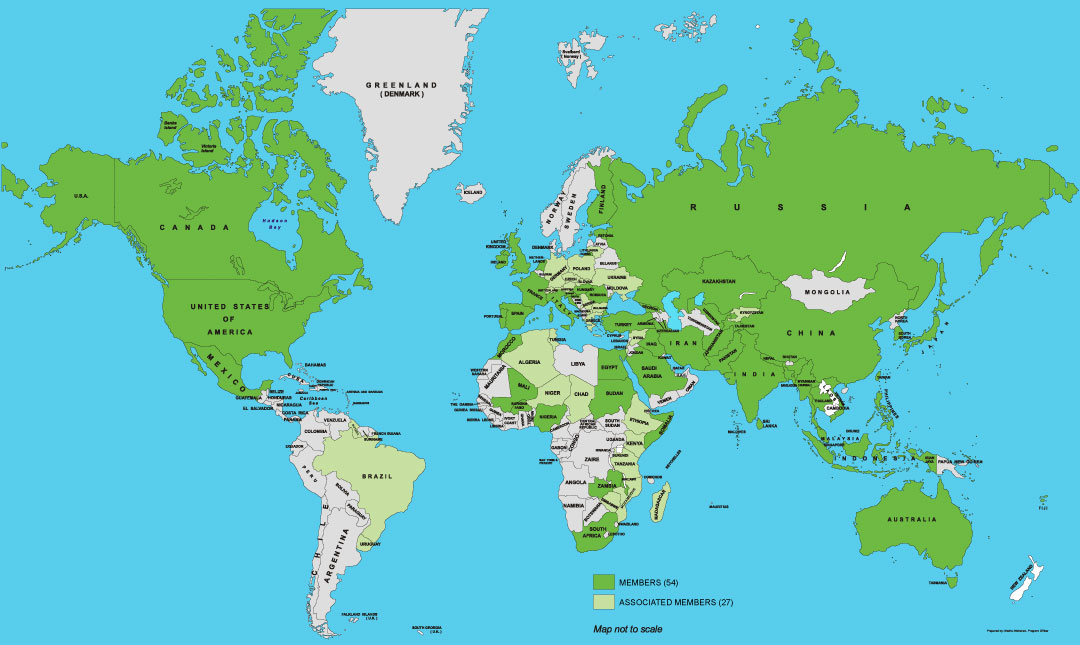

Horticulture is the science, art, technology and business involved in intensive plant cultivation for human use. It is practiced from the individual level in a garden up to the activities of a multinational corporation. It is very diverse in its activities, incorporating plants for food (fruits, vegetables, mushrooms, culinary herbs) and non-food crops (flowers, trees and shrubs, turf-grass, hops, grapes, medicinal herbs).
It also includes related services in plant conservation, landscape restoration, landscape and garden design/construction/maintenance, horticultural therapy, and much more. This range of food, medicinal, environmental, and social products and services are all fundamental to developing and maintaining human health and well-being.
Horticulturist applies the knowledge, skills, and technologies used to grow intensively produced plants for human food and non-food uses and for personal or social needs. Their work involves plant propagation and cultivation with the aim of improving plant growth, yields, quality, nutritional value, and resistance to insects, diseases, and environmental stresses. They work as gardeners, growers, therapists, designers, and technical advisors in the food and non-food sectors of horticulture.
Horticultural scientists focus on the research that underpins horticultural knowledge, skills, technologies, education and commerce. Horticultural science encompasses all of the pure sciences - mathematics, physics, chemistry, geology and biology – as well as related sciences and technologies that underpin horticulture, such as plant pathology, soil science, entomology, weed science, and many other scientific disciplines. It also includes the social sciences, such as education, commerce, marketing, healthcare and therapies that enhance horticulture’s contribution to society.
Horticulture primarily differs from agriculture in two ways. First, it generally encompasses a smaller scale of cultivation, using small plots of mixed crops rather than large fields of single crops. Secondly, horticultural cultivations generally include a wide variety of crops, even including fruit trees with ground crops. Agricultural cultivations however as a rule focus on one primary crop.
Related items you may like
Irrigation
Sources of Irrigation
Irrigation History +
Sources of Irrigation +
IMPROVING SOIL MOISTURE +
Ponds +
Tanks +
Diversion Weirs +
Dams and Reservoirs +
Groundwater +
Conjunctive Water Use +
Wastewater +
Poor Quality Water +
Application of Irrigation water
Canal Irrigation +
Flood Irrigation +
Deficit Irrigation +
Supplemental Irrigation +
Sprinkler Irrigation +
Drip Irrigation +
Lift Irrigation +
Centre Pivot Irrigation +
Tidal Irrigation +
Micro-Irrigation Technologies for Small Holders +
Automatic Irrigation Systems +
Pressurized Irrigation +
Irrigation in Viticulture +
Purpose of Irrigation
Instruments and implements of Irrigation
Pumps +
Centrifugal Pumps +
Submersible Pumps +
Turbine and Jet Pumps +
Conveying Pipes +
Sprinklers +
Drippers +
Canal Automation Systems +
Irrigation Management
Economics of Irrigation System +
I&D System Types +
I&D Investment Functions +
I&D Management Issues +
Participatory I&D Management +
Equity in Irrigation +
Irrigation Services +
Irrigation and environment
Pollution and Irrigation +
Irrigation and Climate Resilience +
Environmental Aspects of Irrigation +
Environmental Impacts of Irrigation +
Green Lawn Irrigation +
Safe Use of Waste Water in Irrigation +
Organic Agriculture +
Soil Health +
Soil Health Management +
Quality of Irrigation Water +
Capacity Development
Drainage
Drainage Types and Systems
Agricultural Drainage +
Field Drainage systems +
Canal Irrigation and Drainage +
Surface Drainage Systems +
Subsurface Drainage +
Mole Drainage +
Bio-Drainage +
Regional Bio-Drainage +
Drainage Issues
Result Found: NONE


